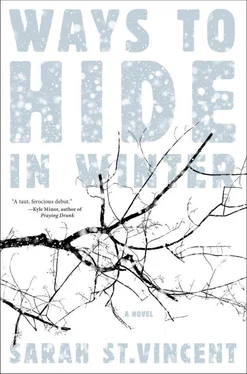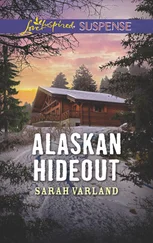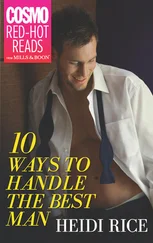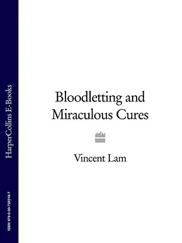“Your grandfather,” he said. “What was he like?”
“My grandfather?” I looked down at the black and white squares, caught off-guard. A laughing man with yellowed teeth, tall and slim despite his age, appeared in my mind’s eye. “I don’t know. Depends who you ask, probably. My grandmother would say he was—well, I can’t repeat what my grandmother would say. He was a piece of work. Let’s put it that way.”
“I see.” His knight advanced toward me. “So you didn’t like him?”
“Oh—no, that’s not it. I liked him very much, actually.” I kept my eyes on the board, lifting a bishop and sliding it forward. “I saw a different side of him than most other people did. He was a nightmare of a husband, and a nightmare of a father, too, from what I can gather. But he wasn’t too bad as a grandfather.” After a moment of hesitation, I took my finger off the piece. “In fact, I’d even say he was pretty good.”
He contemplated my move, scratching his nose. “So he changed as he grew older?”
I thought about it. My grandfather had been a difficult man, I knew, and yet a surprising number of my memories of him were gentle ones. Holding his hand as we walked to buy penny candy at the store that was now Miller’s, listening to his jokes as he knelt to help me try on a pair of shoes, sitting beside him at the church organ and poking at the yellowing keys. He’d had a gift for music, and used to pick out tunes after mass sometimes, until Father MacIntyre politely asked him to stop. It seemed impossible that someone who had been so generally despicable throughout his life—and despicable was the right word, there was no doubt about it—could, at least at times, be such a doting grandfather. I had never been able to reconcile myself to it, the fact that these two radically different men seemed to live inside the same person.
My parents had been young when they’d had my brother and me, and for a time the four of us had lived in two of the upstairs rooms at my grandparents’ house, next to the room where I lived now. One night, I remembered, my grandfather had climbed the stairs with a book of poems in his hand: Emily Dickinson. Smelling of the bar in Carlisle where he worked, he had sat down on the floor of the room my brother and I shared and read to us, coughing in his abrupt, guttural way every now and again. Rumor had it that he’d done terrible things in Korea, and I had seen him hit my grandmother more than once, at one point dragging her across the kitchen by her hair while she screamed. I had been both sad and relieved when he’d died.
“No,” I said, “I don’t think people really change. He was just kind of a complicated person. In fact—” I paused, twisting my hair in my fingers. “I might even go so far as to say he was a bad man.” It felt disloyal, but it was, I thought with a surge of defiance, the truth, and my grandfather himself might even have been proud of me for saying it. “But he was a bad man with good aspects. He wasn’t easy to love, but…I knew him for what he was. He never pretended to be anything else. It was confusing when I was younger, but by the time I got older, I’d accepted it. Mostly.” I ran my fingers through my hair again. “It’s harder when people don’t turn out to be who you expect. Those are the ones that are…hard to take.”
The stranger slowly moved his knight again, capturing one of my pawns. Holding the small piece in his palm, he looked at it, his hair falling forward over his forehead.
“I can see what you mean,” he said after a long moment. “Although I think sometimes people become things they didn’t expect to become.”
I gave a small shrug, waiting for him to go on.
“And sometimes,” he said, “they act as if they were good, because they wish they were. I think we all try that sometimes—pretending to be the person we would like to be.” He put the pawn down with the other captured pieces. “It isn’t a lie; it’s more like a story. Even when we’re older, we’re not so different from children. We all have stories we wish were true. Wouldn’t you say?”
“I suppose.”
While I decided whether to move my queen, he sat back and rubbed his jaw, as if meditating on something.
“I never knew my grandfather,” he said. “My father’s father, I mean. I used to see my mother’s father all the time—he lived in a little flat in our neighborhood—but my father’s father wasn’t from there.”
“Where was he from?”
“We don’t know, actually. My father grew up in an orphanage in Moscow.”
“An orphanage?” I looked up. “Really?”
“Yes. He made his way to Uzbekistan when he was older, maybe seventeen or so. There was an earthquake that destroyed most of Tashkent, and the government sent men from Russia to work on building sites. This was under the Soviets, of course. Someone told him to go, and he went. That’s how he met my mother.”
I looked up at him, studying his face. He was leaning over the board, his arms crossed, concentrating. The pose was so unselfconscious that it was almost like watching him sleep. I had never thought of him as having a family, although of course I knew he was married. For a moment, I felt it: the disorienting understanding that he was every bit as real as I was, had his own private world, his own secret thoughts and depths of feeling. Even the idea of it made me feel as if I were intruding somehow, treading in places that belonged to him, that he had a right to keep to himself.
I sat back. “You have brothers and sisters?”
“Yes, a sister. She has a couple of children, actually. Boys.”
I absorbed this. “So, you have nephews.”
“Yes. They’re three and six.” He stopped. “No. Six and nine. I keep forgetting that so much time has passed.”
I touched a captured pawn to my lips, trying to picture these two children. “Is it…is life hard for them there, in your country? Not—I mean, not because of any special situation you were in. Just…in general.” I closed my hand over the pawn and put it back down. “I keep meaning to learn more about what things are like there, but I haven’t.”
“Oh, I’d say life in Uzbekistan is much like anywhere else—it depends who you are. If you have good connections, if you’re well-to-do…” He spread his hands out, as if the end of the sentence were obvious. “My father had his ambitions. He managed a construction operation for a while, and then after independence…things turned out well for him. For us. We were fortunate.” His look grew distant for a moment. “So I think—I hope—they’re all perfectly well.”
Unconsciously, he crossed his arms, seeming to hug them together. Then he said, “I do miss them, you know. They were good boys. I—”
Behind us, the door opened and Jerry walked in, the black rifle hanging in the crook of his arm.
I had experienced panic—sudden, genuine panic—three times in my life. Two had been with Amos, and one had been during the fire, in the instant I realized the smoke I smelled wasn’t coming from inside the store. The expression on the stranger’s face was exactly what mine must have been in those moments.
In that instant, I understood for the first time that he wasn’t hiding just because he didn’t have some piece of paper he was supposed to have. He was hiding because someone was looking for him.
You can’t stay, I thought, the truth of it entering me like a needle.
“Whoa,” Jerry said gruffly. “Easy, son.”
He stood with his boots planted squarely on the floor, his head tilted back, his beard gleaming blue-black under the florescent lights. My heart leaped into my throat, and I looked from the stranger to the gun and back again.
Something was wrong, I thought, even more wrong than I’d realized. It might be flintlock season, but Jerry’s rifle was not a flintlock. Anyone could see that. I didn’t know how the rangers could have missed it.
Читать дальше












